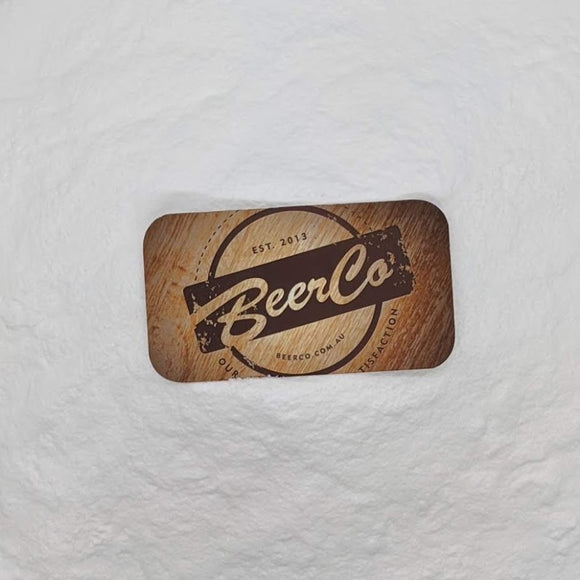Maltodextrin is a commercially produced substance, manufactured in a powder form, that is added to beer to increase the level of dextrins. Dextrins are compounds that are present in the malt. They are non-fermentable, flavourless, colourless, and non-caloric, but contribute to the body of the beer, as well as its mouthfeel and head retention.
Maltodextrins are glucose polymers present in wort after mashing. They are not normally utilized by brewing yeasts. Glucose, maltose (two linked glucose molecules), and maltotriose (three linked glucose molecules) are the principal sugars produced during mashing and are readily utilized by brewing strains of yeast. Higher glucose polymers produced as a result of starch degradation during mashing but not utilized by the yeast are left unfermented and are usually carried forward into the beer. These maltodextrins contribute to the “final gravity” of the beer and generate palate fullness, some sweetness, and calorific content to the finished beer.
Mashing can be performed in a manner that promotes the production of maltodextrins when greater palate fullness is desired. In light beers these maltodextrins are virtually absent as a result of additional enzyme activity during mashing (sometimes using exogenous industrial enzymes) to effect near-complete starch breakdown to simple sugars.
Low-carbohydrate diets (e.g., the Atkins Diet) encourage the use of these light beers because of their low carbohydrate content. However, most types of beer have relatively low carbohydrate content in the first place, and the “low-carb” beers often suffer from a certain thinness on the palate as a result of a deficiency of body- enhancing maltodextrins.
Form:
Powder
Pack Sizes:
- 1 Kg Bag
- 5 Kg Bag (SAVE 20% OFF 1Kg Price)
- 25 Kg Sack (SAVE 39% OFF 1Kg Price)
Usage Guidance:
Maltodextrin does not contribute any significant sweetness to a beer. Typical usage is between 6-12g per Litre. For best results, add during hot side process – ideally to the kettle, or at least prior to cooling.
Colour: EBC / SRM = 0
Diastatic power (DP) = None
PPG [PPG measures the maximum starting gravity (SG) of the fermentable in points/pound/gallon. This can differ based on your mash efficiency and the amount of wort collected] 40PPG 1.040 SG
Recommend no more than 5% of total grist or grain bill or fermentables. [note: maltodextrin is a non-fermentable]
Typical Specification:
Item |
Unit |
Specification |
| Appearance | White Powder | |
| Odour | Not Special Smell | |
| DE Value | % | 18 - 20 |
| Moisture | % | <= 6.0 |
| Solubility | % |
>= 99.0 |
| pH value | pH | 4.5 to 6.5 |
| Total Protein | % m/m | Max 1.0 |
| Sulphate Ash | % | <= 0.1 |
| Iodine Test | No blue reaction | |
| Pb | mg/kg | <= 0.2 |
| As | mg/kg | <= 0.1 |
| Cu | mg/kg | <= 5.0 |
| Protein | <= 1.0 | |
| S02 | mg/kg | <= 10 |
| Coliforms | mpn/g | <= 30 |
| Salmonella | /25g | Not detected |
| Listeria | /25g | Not detected |
| Coagulase positive | cfu/g | <10 |
| Escherichia coli | cfu/g | <10 |
| Bacillus cereus | cfu/g | <100 |
| Mesophilic spores | cfu/g | <300 |
| Thermophilic spores | cfu/g | <300 |
| Cronobacter | /300g | Not detected |
| Sulphite reducing clostridia | cfu/g | <50 |
| Yeasts & Moulds | cfu/g | <10 |
| Coliforms | mpn/100g | <=30 |
| Foreign Matter: clear solution | ||
| Packing: 25Kg bags |
Shelf Life: 730 Days


